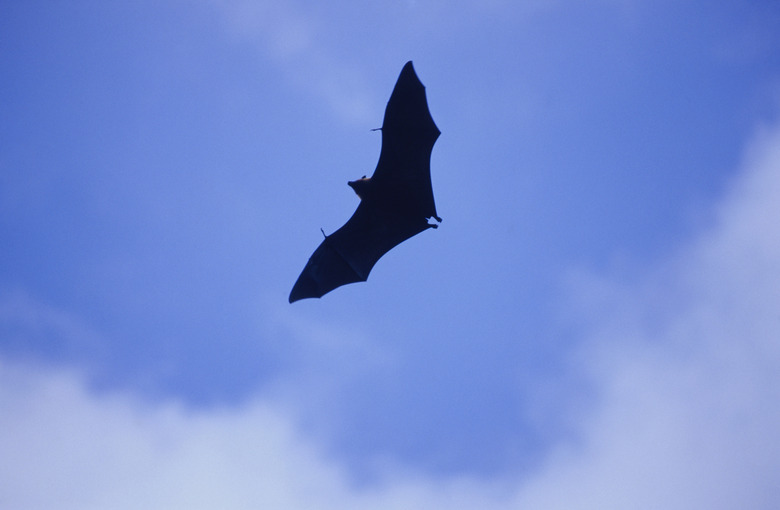Regulations On The Removal Of Bats
When a bat makes its way into your home or a colony begins roosting in your attic, your first question is likely "How do I get a bat out of my house?" Before taking action or going into bat-hunting mode, first ask yourself if those bats are protected. When it comes to navigating the regulations on the removal of bats, you should tread lightly, and you might need to seek an expert for assistance.
Are Bats Protected?
Are Bats Protected?
In short, sometimes. The federal government provides protections for certain protected bat species across the United States. You cannot kill, capture or otherwise harm those species of bats. However, federal protections are only one governing body that protects wildlife. Individual states also set their own rules and regulations as well for protecting species.
Are Bats Endangered?
Are Bats Endangered?
Yes, some species of bats are endangered. The United States Fish & Wildlife Service lists eight different endangered or threatened bat species on the Endangered Species Act:
- Northern long-eared bat, Myotis septentrionalis (threatened)
- Indiana bat, Myotis sodalis (endangered)
- Gray bat, Myotis grisescens (endangered)
- Virginia big-eared bat, Plecotus townsendii virginianus (endangered)
- Ozark big-eared bat, Plecotus townsendii ingens (endangered)
- Mexican long-nosed bat, Leptonycteris nivalis (endangered)
- Lesser long-nosed bat, Leptonycteris curasoae yerbabuenae (endangered)
- Florida bonneted bat, Eumops floridanus (endangered)
However, individual states also have their own threatened or endangered species designations in addition to the federally listed species.
How to Remove Bats From Your Home
How to Remove Bats From Your Home
Though some bats have federal or state protection, you might need to remove them from your home. Bat droppings, also known as guano, can spread disease. Bats themselves also account for one-third of reported rabies infections per year.
Bat-exclusion devices provide you with the safest and most effective way to permanently stop bats from roosting in your home. When installed properly, they allow the bats to leave but keep them from re-entering your home. Professional pest control companies can provide you with the best option for blocking all other entries and properly installing the exclusion devices.
Why Are Bats Protected?
Why Are Bats Protected?
Have you ever wondered why are bats a protected species? Different bat species face different threats, but all endangered species have limited or declining populations. Habitat destruction and insecticides have decimated the numbers of some bat species. However, the biggest threat to all bat species in North America at this time is white-nose syndrome.
A disease caused by a fungus, white-nose syndrome first arose in 2007. In six years, the disease wiped out a total of 5.7 million bats. It has single-handedly resulted in the United States Fish & Wildlife Service considering three new species for protection under the Endangered Species Act after population declines of more than 90 percent.
Environmental and Economic Benefits of Bats
Environmental and Economic Benefits of Bats
Regulations on the removal of bats are incredibly important in light of their quickly declining populations. Bats have an important place in the food web and feed on hundreds of insects every night. Their feeding habits not only benefit the ecosystem but provide important economic benefits to humans as well.
Research has shown that bats consume many different species of mosquitos, and also feed on mosquitos more frequently than previously believed. By reducing mosquito populations, bats help prevent mosquito-borne illnesses such as malaria and the Zika virus.
Mosquitos aren't the only prey for bats. Bats also hunt for a range of different insects, many of which feed on crops such as corn. One study estimated that bats save farmers an estimated $1 billion worth of crop damage from pests per year. Despite their unsavory reputation and potential as a rabies vector, bats make up an incredibly important piece of any ecosystem.
References
- American Veterinary Medical Association: CDC Reminder Bats Are the Leading Rabies Vector in the US
- Bat Conservation International: Protecting Endangered Species
- Cave Conservation and Restoration: Federally Listed Threatened and Endangered Bat Species of Importance to Caves and Mines
- Florida Fish and Wildlife Conservation Commission: Florida Bonneted Bat
- University of Wisconsin-Madison News: Study Bolsters Bats Reputation as Mosquito Devourers
Cite This Article
MLA
Zinni, Yasmin. "Regulations On The Removal Of Bats" sciencing.com, https://www.sciencing.com/regulations-removal-bats-5818748/. 30 September 2021.
APA
Zinni, Yasmin. (2021, September 30). Regulations On The Removal Of Bats. sciencing.com. Retrieved from https://www.sciencing.com/regulations-removal-bats-5818748/
Chicago
Zinni, Yasmin. Regulations On The Removal Of Bats last modified March 24, 2022. https://www.sciencing.com/regulations-removal-bats-5818748/
